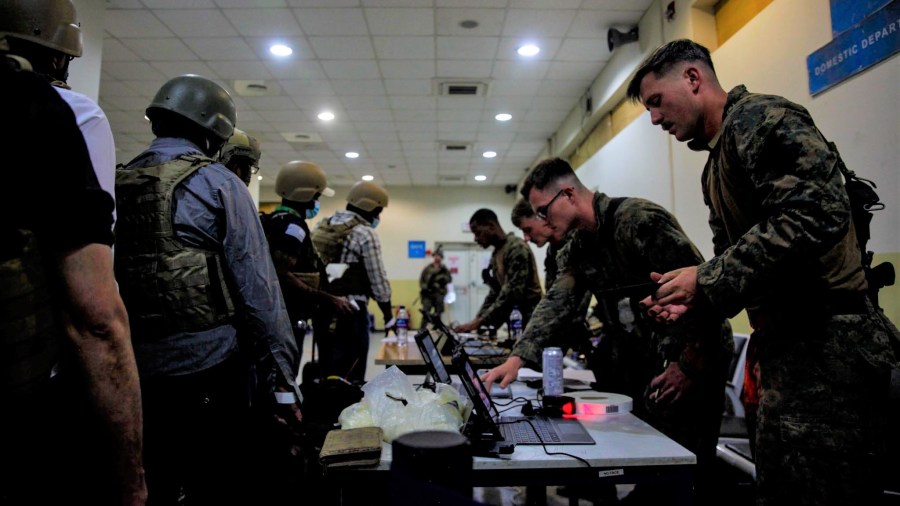- The rapid collapse of the government in Kabul after the American withdrawal teaches that Jerusalem must defend itself on its own in the Iranian context, against the Palestinians, and other threats.
- The weakness projected by Washington teaches regional states that Israel stands out as a stable pillar in the region
A version of this article appeared in Hebrew in Israel Hayom on Aug. 16, 2021.
The speed of the collapse of the Afghan government and its U.S.-backed security forces with their 300,000 troops and advanced equipment against Taliban forces causes great embarrassment to the Biden administration. Based on intelligence assessments, U.S. leaders promised until the last minute that such a scenario was not expected.
The rapid collapse shows how the American attempt to instill in Afghans a liberal worldview in the space of 20 years was politically and culturally impossible and how misguided that approach was in the first place. It also provided further evidence of the difficulty that the West has in general – and U.S. intelligence in particular – in understanding the Islamic world and the role of religion and tribal affiliation in it.
But the more fundamental problem is that the decision to leave Afghanistan, which led to the collapse, is part of an American strategy – to which Trump was also partly a partner, but it intensified under the Biden administration – to reduce the U.S. role as an international superpower, especially in the Middle East, for all that it implies. Therefore, the collapse will be recorded in history as another manifestation of American weakness stemming from the reluctance to pay the price in human life and the financial cost involved in the ongoing struggle against radical Islam. This American failure may strengthen radical Islamic elements such as Iran, Al Qaeda, and ISIS, and also elements of the Muslim Brotherhood, including Hamas, and encourage them to challenge the United States and its allies, including Israel.
President Biden tried to justify his decision to withdraw by portraying the war in Afghanistan as a local civil war, as if the West does not have an interest in the outcome of this conflict. In fact, this is a war between two schools of thought inside Islam; the outcome may have a long-lasting impact not only on the kind of life the people of the Muslem world are going to have but on global security. Therefore, the West should have shown much more patience in assisting the moderate forces who, in some locations, cannot stay in power without close support. The lack of readiness to do so by the only Western superpower means that the extremists may feel that they have much less to lose in the future if they challenge the West since another attempt to build a functioning moderate government is not going to happen.
The essential lesson for Israel of the dramatic events in Kabul is that with all the importance of Israel’s strategic partnership with the United States – which is irreplaceable – Israel must recognize the limitations of a superpower’s backing, and therefore adhere more closely to the principle that Israel will defend itself on its own. This is a relevant lesson in the Iranian context when the Americans project hesitation in response to Tehran’s many provocations, and this is true in the Palestinian context. Once again, it becomes clear how critical Israeli responsibility is for security in Judea and Samaria and the Jordan Valley. Disturbing is the thought that there were elements of the Israeli security establishment that in 2013 seriously considered U.S. General John Allen’s security plan – which proposed placing foreign forces in the Jordan Valley and giving Americans a key role in managing the security issue as part of the Obama administration’s proposals for a permanent settlement.

Precisely in the face of the weakness projected by the United States, Israel stands out in the regional arena as a stable pillar that moderates in the region can rely on. This is an opportunity to leverage the problematic developments in Afghanistan to strengthen and expand the Abraham Accords between Israel and moderate Arab states, which stood the test of the first year of the Accords’ signing, as well as building ties with others disillusioned with Washington’s problematic functioning. For this purpose, it is also possible to take advantage of the predicament to which Iran and its proxies throughout the Middle East are subjected at this point.









